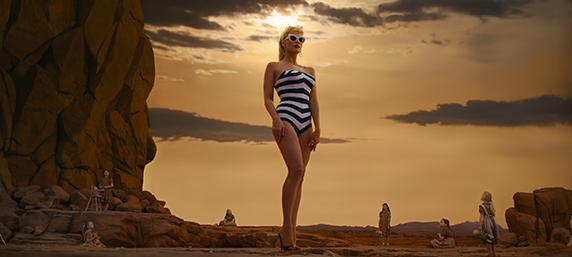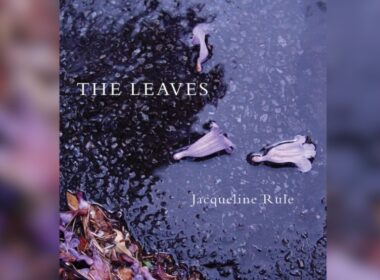Oppenheimer
It feels inevitable J. Robert Oppenheimer would eventually be the protagonist of a Christopher Nolan-directed biopic, the same way it was unavoidable his first war film would be about Dunkirk. A meticulous technician, Nolan is attracted to the cerebral mechanics of filmmaking, not the raw emotion. Oppenheimer is an exciting subject precisely because there is a compelling stoicism behind his notoriety, and a film does not have to separate the man from the work he has done, because both are interconnected.
Oppenheimer is framed between two realities that Nolan sets up right at the start. “Fission”, in colour, tells the story of the Manhattan Project, from inception to conclusion. “Fusion”, in black and white, focuses on the security hearings one decade later. Both timelines merge into one quite seamlessly, but what is interesting is how each has a distinctive narrative and emotional style.
Fission is part Terrence Malick, part Paul Thomas Anderson’s There Will Be Blood. It presents Oppenheimer (Cillian Murphy) as a man driven by the pursuit of knowledge in a tumultuous time. He is acutely aware of the changing politics and how it affects his Jewish community. In a meeting with Isidor Rabi (David Krumholtz), the two comment on the feeling “their people” are not feeling welcome.
Back in America, Oppenheimer joins Princeton to explore a new kind of physics. The world around us is changing. Oppie, as he’s known, sympathises with the communists on campus and attends some meetings but never joins the party. The U.S. government sees this as a security issue, his colleague Ernest Lawrence (Josh Hartnett) warns him, but Oppenheimer doesn’t care. He only cares about science. Science and sex with Jean Tatlock (Florence Pugh), but his priorities are not wrong.
It’s interesting how this section is so emotionally paced. It felt at times like a heist movie as directed by Malick. Scientists planning the big moment in a race against time (Nolan’s signature subject). It elevates the project to build the bomb before the Nazis and Soviets as more important than anything else in their lives. We only learn a little more about Oppenheimer; he eventually marries Kitty Oppenheimer (Emily Blunt) and has two children with her. We know he has acquaintances, and his brother Frank (Dylan Arnold) is a card-carrying communist. Apart from that, Nolan lets the little details in the script flesh out the character.
If the film’s first half is an exciting tour-de-force, the second half is Oliver Stone’s JFK. Men in smoke-filled rooms, shouting and accusing each other. It’s a good and compelling political thriller that delivers where it has to, but it comes with inherent sadness. After spending two hours cheering for these scientists to build a weapon of mass destruction, whose goal we know better than theirs, the film gives us a bittersweet moment when the team realises the impact of their creation. This sadness permeates the rest of the film, particularly when politics comes into play. At this moment, Nolan has an unexpected sleight of hand. He presents the scientist, usually stoic and unemotional, mourning his actions to an unfazed and unresentful Harry Truman (Gary Oldman). Scientists, Nolan says, are naïf, but politicians are heartless.
The cast is tremendous. Murphy inhabits Oppenheimer’s insecurities well. I loved Krumholtz’s warmth and Benny Safdie’s Edward Teller, a man so obsessed with his goal that he lacks Oppenheimer’s humanity. But it’s Robert Downey Jr. as Lewis Strauss, the de facto villain of the story, who almost steals the show.
The women, Pugh and Blunt, suffer from that usual Nolan problem where women are poorly written but competently performed. In this case, Nolan makes the mistake of having Kitty and Tatlock defined only by their relationship with Oppenheimer. It leads to probably the two worst moments in the film – how it deals with Tatlock’s death, relating all her mental health problems to the man she couldn’t be with.
There are a lot of movies here. Oppenheimer is dense, even if some of its ideas are only explored at surface level. Does it matter? I don’t think so. With the obsessiveness of a watchmaker, Nolan constructs a piece that radiates energy on every frame. Again, the cinematography by Hoyte van Hoytema is a testament to large-scale natural lighting that looks so grandiose on the big screen. All effects are filmed. Nolan proudly stated there are no computer-generated shots, and it shows. The film feels authentic and palpable. A relic from the past that at the same time couldn’t have been made at any other time.
It shows Nolan is not the Kubrick alumni many critics see him as. Sure, he’s methodical and cerebral, but he treads his own path.
Verdict: 4.5 out of 5
For all the adults in the room. Oppenheimer is an intense experience that deserves to be seen on the big screen.

Barbie
The laughs in Barbie are often sold separately to the sparkle of the main event. Sitting well outside the box of this picture-perfect technicolour dream are meta-jokes and cutting asides to camera. It is a reminder to the audience that behind one of 2023’s most talked-about releases is the combined wit of a once-indie darling pair.
Directed by Greta Gerwig, of the acclaimed Ladybird and Little Women, co-written by her personal and professional partner Noah Baumbach, and produced by leading lady Margot Robbie, the premise of Barbie needs no further explanation. The point of it is another matter entirely, and a source of furious debate on the future of original cinema in this new era of IP plundering. But in offering up almost two hours of colour, entertainment, and saccharine fun for easy and joyous consumption? Barbie delivers on its pitch.
It is Barbie’s World and the Kens (led by a scene-stealing Ryan Gosling playing his himbo “beach” best) just live in it. Here everything from the civil service, the judiciary, the beautification, and the parties are coordinated with style and sisterhood by a super clique of Barbies, led by the Stereotypical one (Robbie). Midway through the opening dance number, complete with glossy choreography to Dance the Night by Dua Lipa (who also stars as Mermaid Barbie), Stereotypical Barbie asks her besties “do you guys ever think about dying?”
It is the first in an unfolding series of existential crises: her shower runs cold, she has morning breath, and her perfectly arched heels become ruinously flat-footed. To return to her dream house status quo, Barbie must venture into the real world to find the humans (America Ferrera and Ariana Greenblatt as a prickly mother-and-daughter pair) who are filling her doll’s head with dread. Her hero’s journey begins with a pep talk from Weird Barbie (Kate McKinnon) who lives in a rainbow nightmare house, visited only by fellow ghosts of the Mattel graveyard (including Barbie’s former dog Tanner, whose play set in the real world was urgently recalled as a choking hazard), and is tortured from the other side by young human girls who cut her hair, trash her clothes, and split her legs apart.
Soon, Stereotypical Barbie is in the real world of Venice Beach, California, confronted for the first time by the violence of a chauvinistic stare and a Gen Z tween girl crowd who have cancelled her for being a fascist. Ken, however, joyfully discovers horses, patriarchy, and dude rock, and drags these lessons back to Barbie World. Can the sisterhood band together to smash the glass ceilings that have now been installed on their dream houses?
Stereotypical Barbie considers whether she is the right choice to lead the revolution— “there are more leadership-orientated Barbies”, she reasons. There is deliberate placement of President Barbie (Issa Rae) in The Pink House and a full bench of Supreme Court Justice Barbies, in case the audience needs a prompt for the 2016 US Election result or the overturning of Roe v Wade. It is just one example of the irony Gerwig layers on in the film’s final (and weakest) third as the balancing act between happy ending and hyper-aware gags does not always land.
The playful ribbing of Mattel executives (led by Will Ferrell) is amusing but carries the strong scent of pre-approval. This is corporate satire at its safest, and it is a formula set to be retested many times over in coming productions. Barbie is the first of a flurry of blockbuster toy adaptations, with Oscar winner Daniel Kaluuya confirmed as producer for a feature film on Barney the Dinosaur and Girls creator Lena Dunham penning and directing a live action take on Polly Pocket.
Verdict: 3.5 out of 5
This confection wants to have its cake and eat it too, and for the most part succeeds in pulling off the sugar high.




